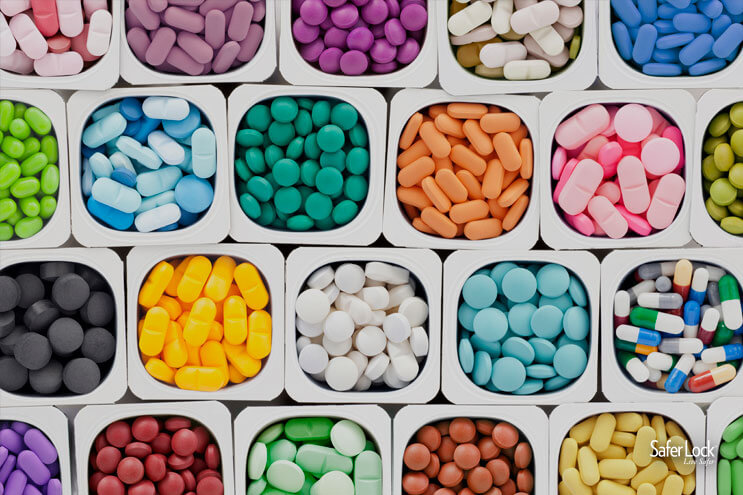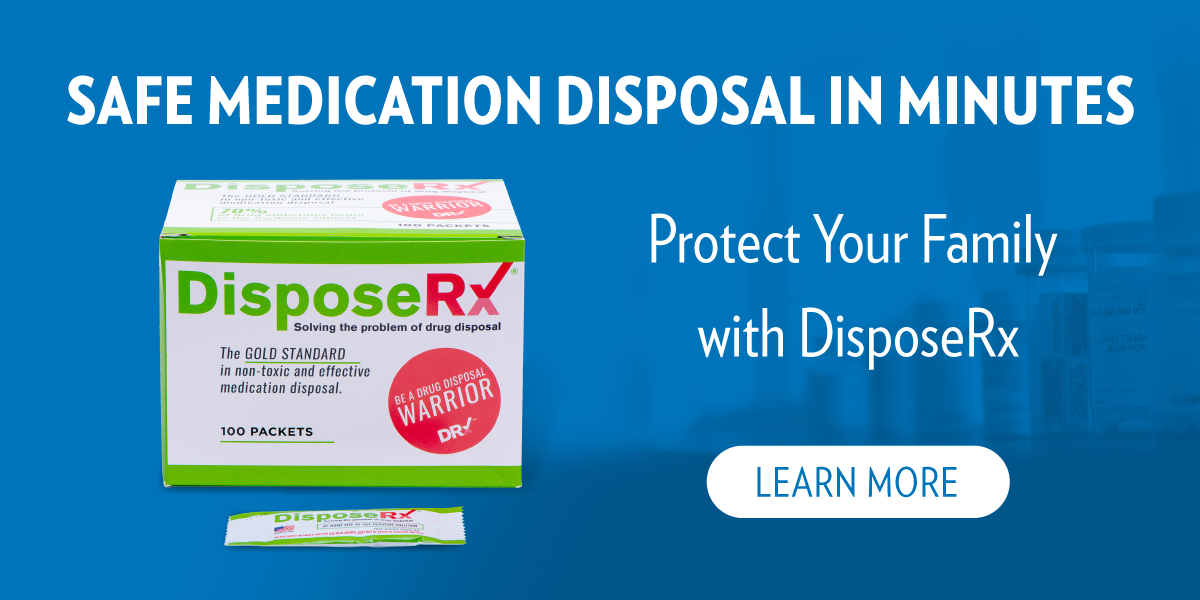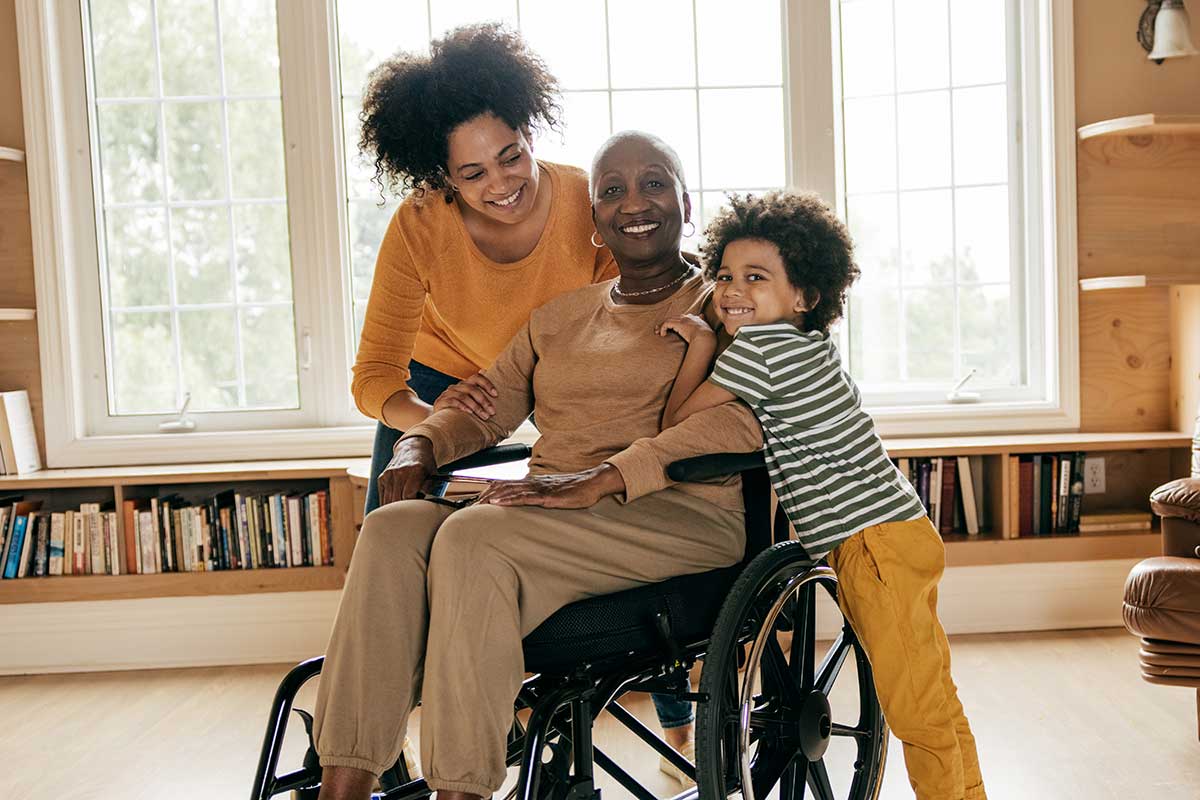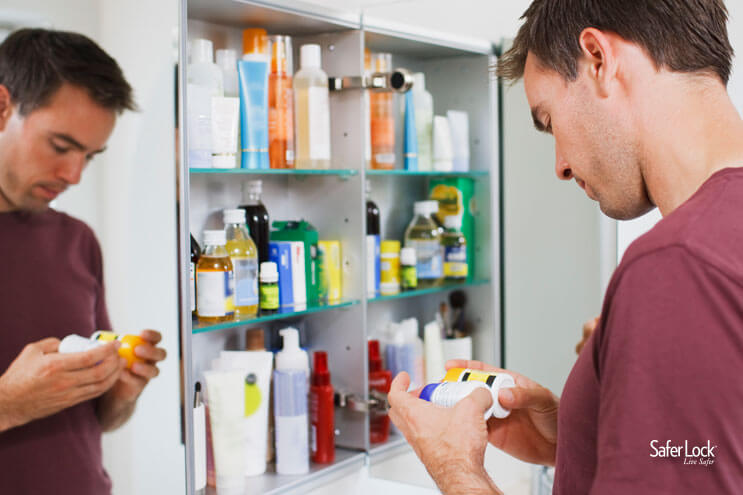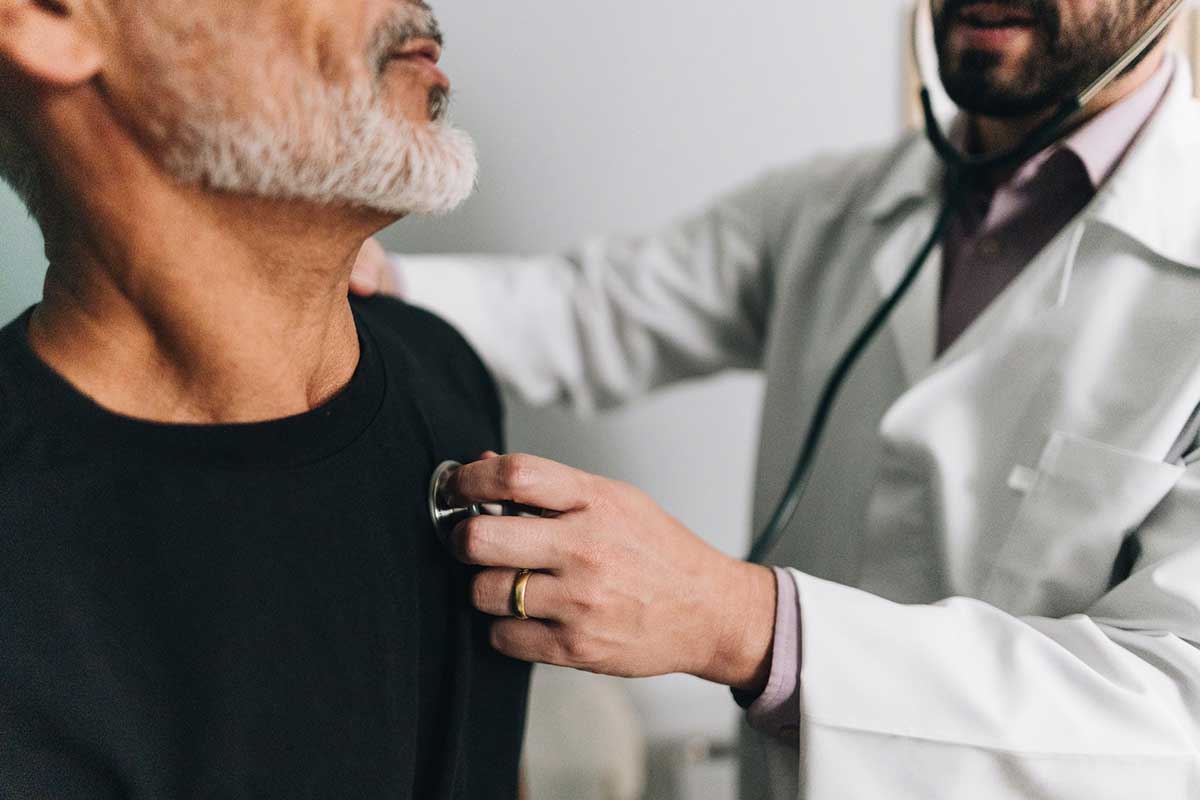When was the last time you cleaned out your medicine cabinet?
If you’ve been putting this task off for a rainy day, no one could blame you. Just like organizing the closet, garage, or the room that was “supposed to be a home office,” organizing your medications isn’t always at the top of your to-do list.
But unlike the others, this task could be life-saving.
Medicine abuse is real, and it’s happening in your community. Properly disposing of unneeded medications is one way you can prevent medicine abuse in your own home.
Unneeded medication can fall into the wrong hands. It’s easy for experimental teens or curious young children to access medications from a medicine cabinet.
Proper medication disposal doesn’t have to be difficult.
Learn when to dispose of medication and how best to do it.
Why Should You Get Rid of Old, Expired, or Unneeded Meds?
It’s simple: getting rid of medication that you no longer need helps prevent abuse and accidental medication poisoning.
Medicine is the leading cause of fatal accidental childhood poisonings in the home. Pain medicines, like prescription opioids, are among the most common causes of fatal poisonings in young children.
The risk of accidental medication poisoning increases in multi-generational homes or the homes of grandparents; nine out of ten older adults take prescription medications.
Young children may accidentally stumble upon medications left unsecured or organized in pill boxes. But for the teens and young adults in your home, prescription medications may present an entirely different set of risks.
Studies show that teens mistakenly believe that prescription drugs are “safer” than illicit drugs, and one in four teens admits to misusing a prescription drug.
The prescription medicines most misused or abused by teens are opioids, depressants, including antianxiety medications like benzodiazepines and sleep medicines, and stimulants such as ADHD drugs.
Teens often are unable to realize that pilfering a prescription from the family medicine cabinet or a friend’s house could lead to substance use disorder or worse.
Opioids account for the majority of drug-related deaths. In most cases, these deaths are avoidable.
North America has seen a spike in opioid overdose deaths since the onset of the pandemic. In the past 20 years, drug overdose deaths have increased by over 250%.
OTC medicines can also pose a risk for experimental teens. While older teens are more likely to experiment with illicit street drugs or prescription medications, younger teens are experimenting with OTC cough and cold medications. In some cases, OTC medicine abusers are taking up to 20x the recommended dose of DXM (the active ingredient in cough syrup) in order to experience effects similar to PCP or ketamine.
Imagine you have some leftover pills from a bone fracture you suffered several months earlier or a bottle of cough syrup that you haven’t touched since your bout with bronchitis last year.
Would you notice if a couple of pills went missing? What if the level on the cough syrup bottle changed?
The answer is probably not.
A small change in the quantity of medication that you no longer use can be hard to detect, but can ultimately have a huge impact on the life of the person who steals it.
Be sure to rid yourself – and your loved ones – of the unnecessary hazard posed by leftover and unneeded medicine.
How to Clean Out Your Medicine Cabinet
Taking steps to audit your medicine cabinet and disposing of old, unneeded medicines is a safety step that can bring you peace of mind.
Go through your inventory of medicine and set aside medications that are:
- expired
- unwanted
- unneeded
Safely disposing of these meds will limit the risk of accidental poisoning and medication abuse.
How to Safely Store Medications
You will likely keep some medications. Be sure to store them safely to protect your loved ones. Learn more about safe prescription use from the Prescription Playbook.
Safely securing and storing your medications can help protect your family against theft, accidents, and misuse.
- Combination locking caps can help deter would-be thieves from casually swiping a few pills without you noticing. These are excellent solutions when you have one or two bottles of opioids, benzodiazepine, or other highly addictive Rx medications in the home.
- Medication lock boxes can help you keep all of your medications locked up tight in one convenient place. These are an excellent solution if you have multiple prescription medications or want to lock up both Rx and OTC meds in one secure location.
- Locking medication bags or pouches can be an effective solution to traveling with prescription medicines, or can take the place of a lock box if you want a soft-sided storage solution.
- Store meds up high and out of reach of young children to avoid accidental medication poisoning or unwanted access.
- Keep it out of sight to help ensure you aren’t making it easy for anyone to find. If you have teens or children frequenting your home, don’t leave medications lying around on bedside tables or in easy-to-access medicine cabinets.
Remember that for your little ones, out of sight is typically out of mind. And for older teens, abuse-deterrent locking solutions can help prevent pilfering and experimentation.
How to Dispose of Meds
Getting rid of medicine isn’t as easy as opening the trash can lid or toilet seat and tossing it in. To safely dispose of old meds, there are certain, specific steps you should follow to protect your family, your community, and the environment.
Proper Medication Disposal Method
It’s important to take the right steps when throwing out old meds. If a bottle of unneeded medication is tossed into a garbage can, it can be easily removed and abused.
You’ll want to do the following:
- Gather together all of the unwanted medications that you will be disposing of and remove any labels with personal information, including name and medicine type.
- Take meds to a nearby hospital, pharmacy, or law enforcement agency that will accept your unwanted meds or find a Prescription Drug Take-Back event in your community.
- If you absolutely must throw meds away at home, the FDA recommends mixing any medication with an inedible substance, such as kitty litter, and sealing it in a plastic bag before disposing of it in the trash.
What NOT to Do With Unwanted Meds
Never throw whole bottles of meds into the trash. That makes stealing as easy as reaching into the trash can.
Also, tossing bottles with your personal information on them—your name, address, and prescription info—can lead to home break-ins and theft if they fall into the wrong hands.
Don’t flush your prescription meds down the toilet or the drain. Flushed prescriptions end up in the local supply of drinking water and in lakes, rivers, and oceans, which is bad for everyone.
Taking the proper precautions when disposing of unwanted meds can lead to a safer outcome for everyone, helping prevent accidental poisoning and intentional misuse. Drug Take Back Day is coming up, so there’s no better time than now to make organizing and disposing of medications a priority.
This blog post was updated in 2025 to reflect updated statistics and to ensure all information is relevant and accurate.
